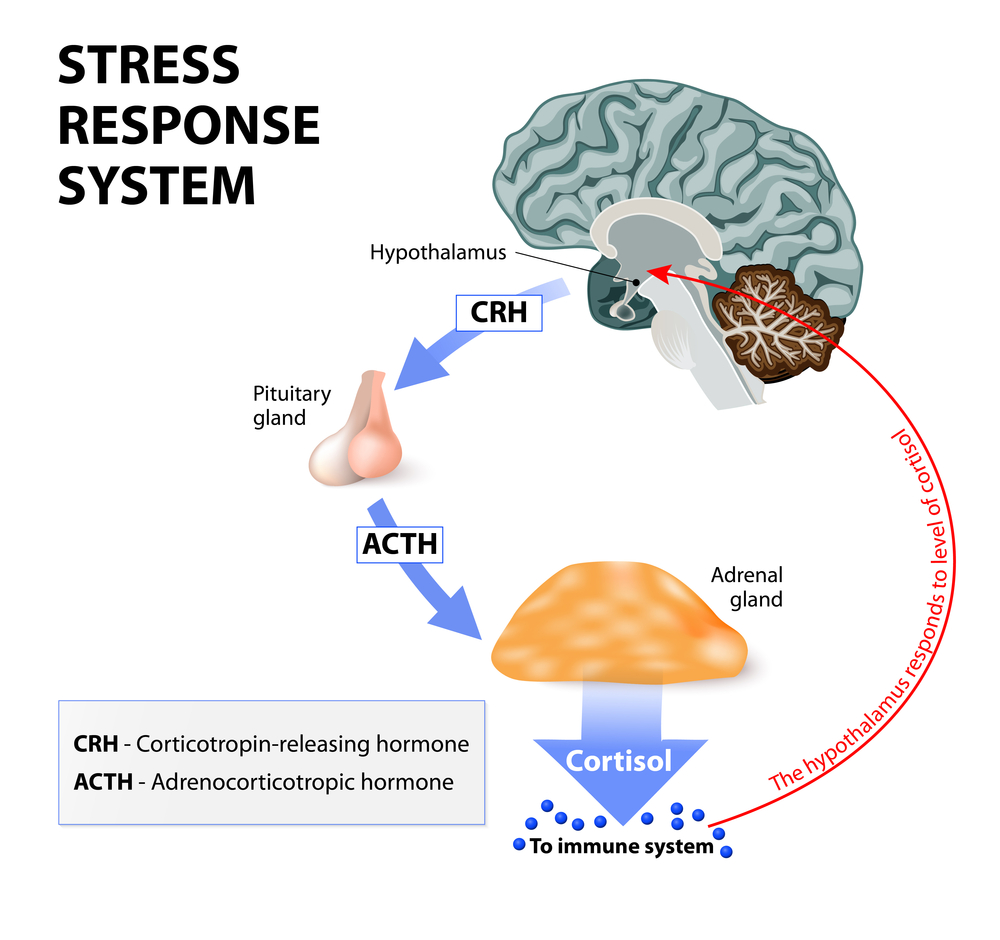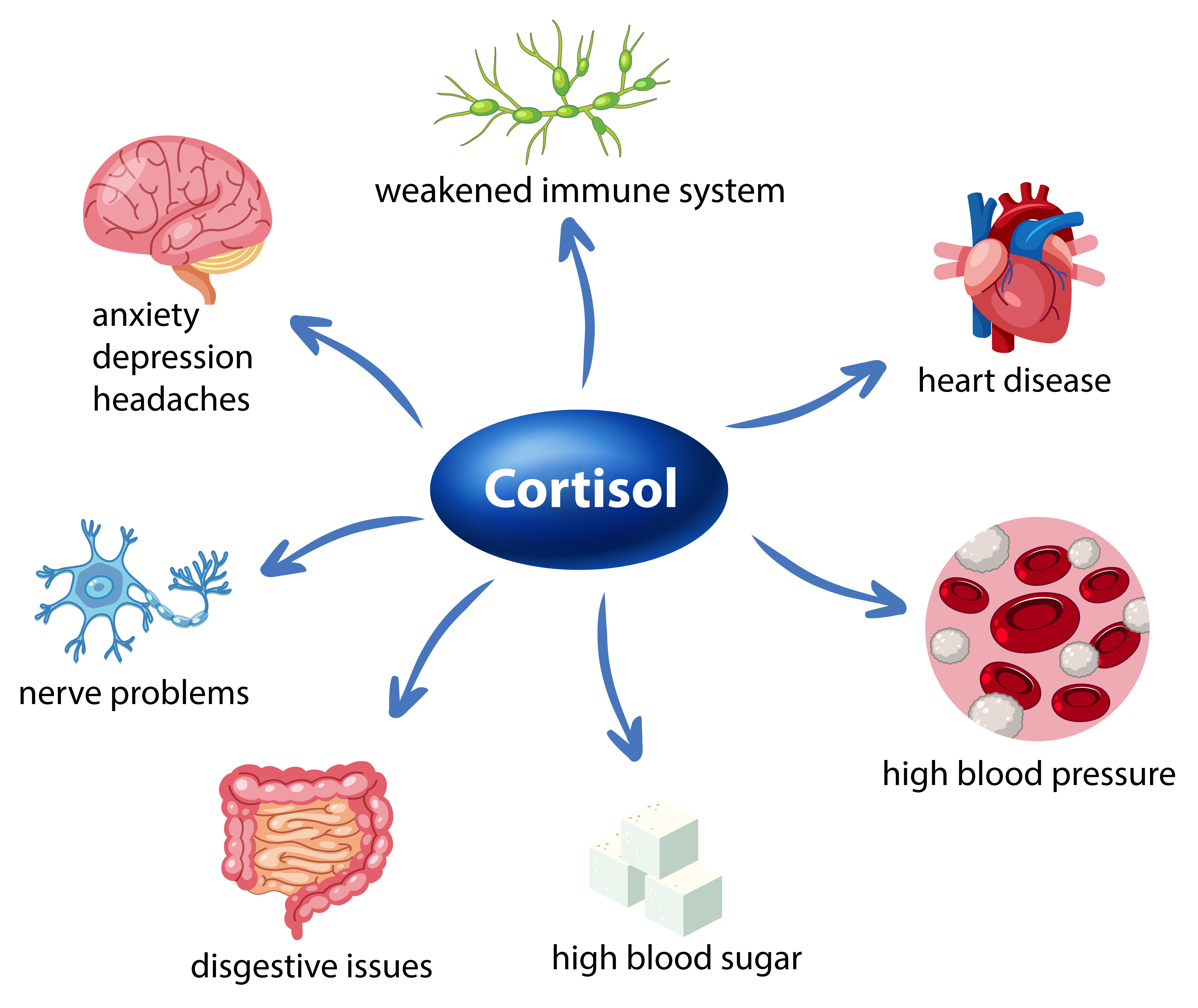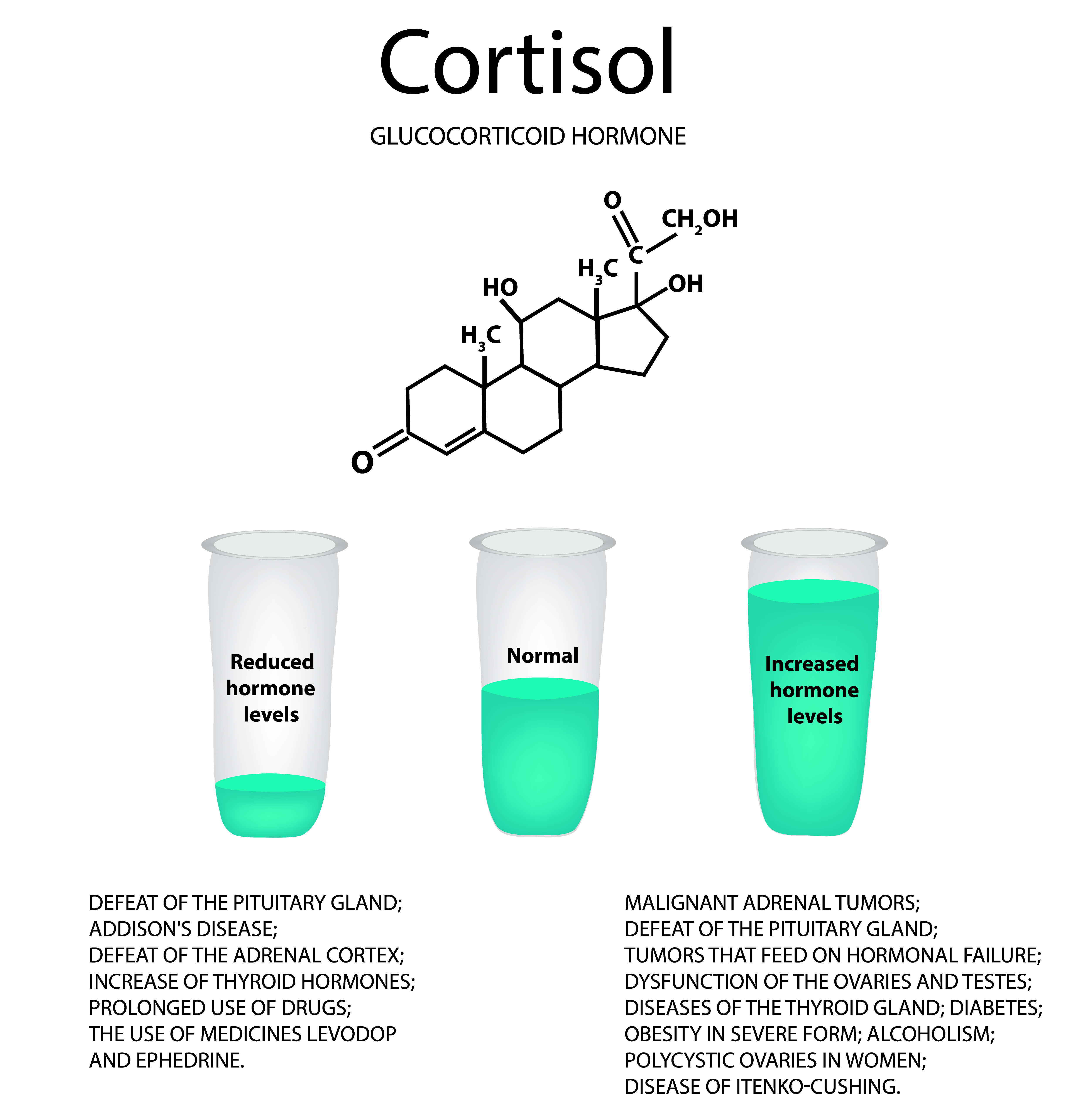The current way of living in these often doesn’t give you a moment to rest. We live in a constant rush: work, home, shopping, family, workouts. There is no time to relax and sleep. Such a lifestyle can stimulate the production of cortisol. Cortisol it self is not a bad hormone, even though the fitness world is often considered the number one enemy. It’s worth noting that the effect of cortisol, however, is completely different when the natural pulse discharge in this challenging situation than during chronic mental or physical stress.
The role of cortisol
Cortisol is a glucocorticoid that is mainly produced in the adrenal cortex. It’s often referred to as the stress hormone. Its most important function is to raise blood glucose in stressful situations. Along with adrenaline and testosterone, it belongs to the group - fight or run.
In healthy body cortisol stimulates digestive processes and metabolism, regulates blood sugar levels, stimulates the immune system and responds properly. Cortisol also has an impact on catabolism, increased lipolysis, and also affects water and electrolyte management - retaining sodium and increasing potassium excretion.
At normal daily rhythm cortisol reaches its peak value when waking up. Thanks to it, we have the energy to get up and function normally in the morning. During the day, there are two more moments in which its level should gently rise. It’s around 1PM and 6PM. The cortisol level during the day should gradually decrease. In the evening its level should be the lowest. Thanks to that we make ourselves sleepy and we can sleep without a problem.
This hormone has a number of important functions in our body and is essential to us, so we cannot say that cortisol is bad. Only too much of it’s dangerous to us.

When there is too much cortisol
When stress persists for too long, too much cortisol builds up. This is most often related to the way of living. Sitting late in front of a computer or TV, too little sleep, no time to relax, continuous chase, but also too much exercise, or exercises too hard for our body, or too restrictive diet. The situation is complicated when the intensity of stress stimulus exceeds the body's adaptive capacity.
In other words – there are too many stress sources. The body cannot cope with them. This usually happens when stress is prolonged over time. There is a permanent increase in cortisol levels. This entails a number of unfavourable consequences.

What happens when the level of cortisol is unnaturally high?
- There is excessive fat deposition in the lower abdomen, often on the face and neck
- Hinders the build-up of muscle tissue
- Strengthens the catabolism of muscle tissue
- It hampers work on reducing body fat
- Stops water in the body
- It affects the weakening of the immune system (frequent infections)
- Causes of circadian rhythm disorders - including sleep problems
With its constantly elevated level it’s not possible to function normally. It’s impossible to achieve peace and relaxation, good sleep, and even maintaining optimal body weight.
You may feel aversion to training, muscle fatigue, tiredness, lack of strength, difficulty falling asleep or waking up at night, gaining weight despite diet.
After some time the body may be so exhausted because of the stress that the natural mechanism stops failing and the level of cortisol becomes permanently too low. It's also not good. Chronically lowered cortisol results in a very low level of energy during the day - especially in the morning, with dizziness, and can also lead to dysfunction of the immune system.

How to lower cortisol levels?
The most important step to take is to eliminate or reduce the source of stress.
Here are some tips to help you lower your stress hormone levels.
-
Get some good sleep
No supplements, no medicine, no action will not work if you do not sleep long enough and if the quality of sleep is bad. Sleep is a basic physiological need that you must take care of. Remember that every few minutes of sleep counts. It’s worth resisting watching series until late and browsing through social media before falling asleep.
-
Eat well
Too strict diet, whether it’s low in calories or one of the macronutrients, or it’s too difficult to maintain and causes stress - will contribute to elevated cortisol levels. Even if your goal is reduction, for 2-4 weeks try to enter a zero or even positive balance. You will revive your body so you will feel better.
-
Limit the amount of workouts (or their intensity)
Instead of strength, without any pleasure to do 4-6 heavy workouts a week, exchange half of them for walks, yoga, stretching or get rid of them completely to relax with family or just sleep.
-
Limit your coffee
If you have more than 2-3 cups of coffee in a day and you cannot imagine functioning without it, you must limit it. The same applies to too much energy and pre-workout drinks and even cocoa and chocolate.
-
Spend time outdoors
Whenever you have the opportunity, spend some time in the fresh air
- Find time to relax with family, friends
- Surround yourself with animals
- If you have the opportunity, go away for a weekend or vacation
- Make sure you don’t have any deficiencies
It’s best to do a blood test first. Deficiencies may include: B vitamins, iron, and calcium. It’s worth remembering that deficiencies are also a form of stress we give our body. In addition, B vitamins play an important role in the metabolism of neurotransmitters.
-
It may also be helpful to introduce appropriate supplementation.
Include adaptogenic substances such as ashwagandha and nerve toning substances magnesium, l-teanine or phosphatidylserine, as well as antioxidants such as vitamin C.
Phosphatidylserine affects the functioning of the nervous system. This compound also has the ability to reduce cortisol production. Studies have shown that it can help reduce cortisol by up to 30%.
In addition to these supplements, BCAA and EPA and DHA fatty acids may also be helpful in lowering cortisol levels.
Cortisol - summarization
Cortisol is a hormone that has two faces. It can be both our ally and the enemy. It’s common knowledge that cortisol is bad and it must be lowered absolutely. This is not true. Cortisol is needed for us to function. Our cousin is a disorder of cortisol secretion. So lowering its level makes sense only in certain situations. Properly selected diet and supplementation may be helpful in reducing cortisol levels. One should not forget, however, that a change in lifestyle and caring for the right amount and quality of sleep will always be crucial.







3 Comments